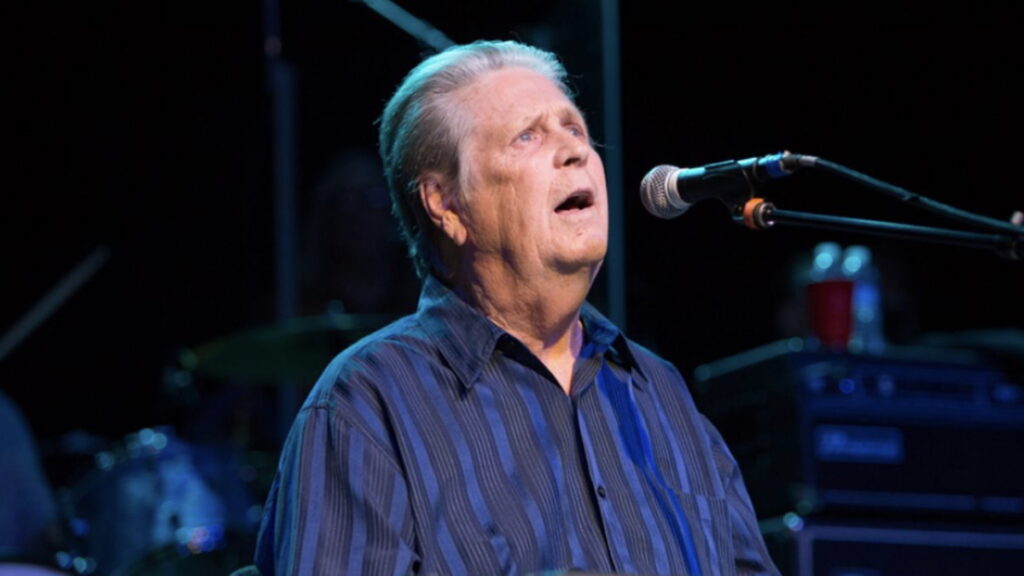“I feel oddly displaced,” I texted my dad when we (along with the rest of the world) heard the news. “Like something important has ended.”
That “something” could apply to any number of spheres that made up the life of Brian Wilson — his music, the coming and going of several important eras in history, a general sort of innocence, a monumental rock band that deteriorates more and more every year, the man himself in the most corporeal sense.
But for me, it feels like a physical chunk of the planet is no longer here — there was something about the sounds of The Beach Boys and Wilson’s solo career that felt of the Earth. Any American my age or older probably can’t remember a time when Wilson’s music wasn’t in our lives, and even without taking this sonic ubiquity into account, the sheer scope of the content seemed to cover it all.
Related Video
His music’s the first thing that comes to mind when I hear the term “synesthesia” — how he seemed to be siphoning every element and mineral from Earth’s crust and mantle, only to convert it into the tangible, somehow visual form of a song. There are his red-and-orange “fire” albums (Wild Honey and Carl and the Passions – “So Tough”), his gentle “green” albums (Sunflower and Pet Sounds), even his far-reaching, iced-out “blue” albums (20/20, The Beach Boys Love You and, despite its name, L.A. (Light Album)). And all of them of course became intangible again when poured into our ears to deepen our collective emotional landscape. And when I describe it like that, hell, maybe his music wasn’t of the Earth at all. Maybe there was something a little, well, alien about it. Which has only made it more universal. He didn’t feel singular just because he was talented; his talent actually felt beamed in from another galaxy.
10 years ago, I got to speak with Wilson for this very website. I had heard he could be a difficult interview subject, so I wasn’t expecting it to go especially well. And it didn’t. He wasn’t a jerk or anything, but there were some audio issues, he kept his answers painfully short, and opted to end our allotted 20 minutes after a mere eight. I wasn’t mad. How could I be? The guy had already lived a long, hard life plagued by any number of issues that I won’t get into here. It makes sense that the world at large feels most connected to him when listening to his music rather than listening to him, if that makes sense.
Fast-forward seven years and I’m talking to Brian Wilson again. Not on the phone—just through his songs. Whether on walks, in the car, or at home, it’s just about the only thing I want to listen to leading up to my wife Susan giving birth to our son, Boone. While I didn’t get much from actually conversing with the man almost a decade earlier, I can feel his songs rewiring my brain for fatherhood on a daily basis. The harmonies alone on “Add Some Music to Your Day” somehow capture my constantly shifting inner topography; just the idea that I can tell something’s changing in me, even if I don’t know what it is yet. I was positive I was going to feel a lot of anxiety about becoming a dad (climate change, wars, our current political climate, take your pick), but every time I threw on one of his songs, it was as if there was someone standing over my shoulder gently saying, “It’s okay, man. There’s beauty here. See?”
The improvised grunts and overall primal nature of “You Need a Mess of Help to Stand Alone” speak to my excitement surrounding the big day. The gravelly shift in his vocals on his cover of The Righteous Brothers’ “Just Once in My Life” remind me that I’m going to start feeling a lot older very soon, and that’s okay. Because I can’t wait to play “Sail On, Sailor” as our first song on the hospital ride home (and I do), and Jesus, don’t even get me started on “God Only Knows.” Has there ever been a more yearning and beautiful sound laid to wax than that French horn?
As you can tell from this op-ed, it’s easy to get a little lost or woo-woo when talking about Wilson’s sonics, which is why it’s important to remember the often childlike nature of his lyrics. For all the spidery shaping he did with Van Dyke Parks, many of his songs are almost bone-headeadly literal, and I’m not just talking about the early cars-and-girls-and-surfing tunes, either. “Johnny Carson” is about “Johnny Carson,” “Spring Vacation” is about spring vacation, and so on. I don’t say that disparagingly; I think that’s a key to its appeal. Because he’s always appealed to my inner child, I felt open to receiving his more complicated emotional messages once I was about to have a child of my own. I wonder if my dad felt the same way when he was about to become a father. Judging from his text, I think maybe he did.
Or maybe all of this is just a long way of saying that Brian Wilson permitted us to be and feel as many things as I’m sure he did, even if he had to translate it all into music instead of speech for us to know what he was going for. So it feels fitting to end this article as simply as possible: I feel sad today. But also happy that we got so much great music. Sail on, sailor.
Content shared from consequence.net.

